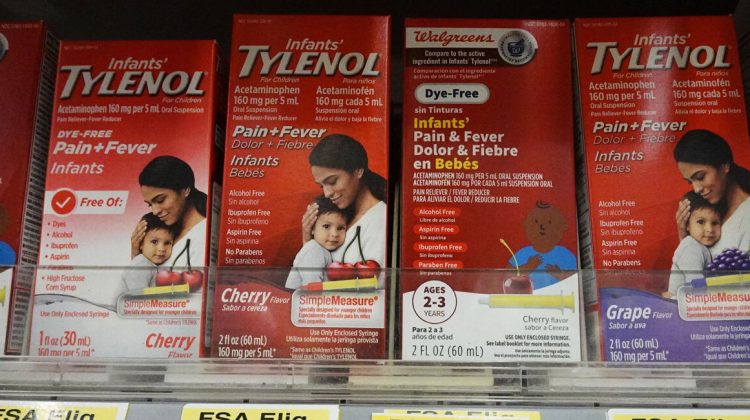MARBLEHEAD — U.S. Health and Human Services Secretary Robert F. Kennedy Jr. recently claimed that there is a link between taking acetaminophen during pregnancy and an increased risk of autism in children. During an Oct. 9 cabinet meeting, Kennedy described it as “irresponsible” for pregnant women to take Tylenol.
At the Oct. 15 meeting of the Marblehead Board of Health, Chair Dr. Tom Massaro addressed ongoing misconceptions linking common medicines — especially Tylenol (acetaminophen) to autism.
In his report, Dr. Massaro emphasized that there is no scientific evidence showing that acetaminophen causes autism, citing two major international studies involving millions of children that found no causal connection once genetics were accounted for.
Dr. Massaro began by reminding attendees of the origins of the vaccine-autism myth:
“In 1998, a paper was published in ‘The Lancet,’ a very prominent journal, that suggested that the MMR vaccine was the cause of autism,” he said.
That paper was later found to be fraudulent, and its author was stripped of his medical license. “But,” Massaro continued, “there continues to be confusion around autism to this day.”
He noted that many people who once blamed vaccines have now shifted their concerns toward acetaminophen, a medication long considered the safest option for fever and pain during pregnancy.
Massaro explained that autism, first described in 1908 to characterize social withdrawal in schizophrenia, has undergone more than a century of redefinition.
“In 2013, ‘Autism Spectrum Disorder’ became the diagnosis covering the many conditions related to brain development that affect how people see others and socialize with them,” he said.
He noted that with the growing recognition of neurodiversity, the view that neurological differences, such as autism, are natural variations of the human brain has brought individuals like Elon Musk and Bill Gates into the conversation. “With all this attention,” he remarked, “the science is becoming unbelievable.”
Addressing the acetaminophen debate directly, Dr. Massaro reviewed two landmark studies that examined genetic factors in depth.
“Some people who believed vaccines were the cause are now suggesting that using acetaminophen should be avoided,” he said. “There have been small studies that have suggested acetaminophen may cause autism. But they generally have not considered the confounding factor of genetics.”
He cited two large-scale studies, one involving 2.5 million children, the other over 217,000, that were specifically designed to eliminate genetic bias.
“Both rejected the claim that acetaminophen causes autism,” he reported.
Because randomized clinical trials cannot ethically be conducted during pregnancy, researchers instead studied families with multiple children, one who received acetaminophen and one who did not. Once hereditary factors were removed, the apparent association vanished.
“Once the genetics was discounted, acetaminophen was not seen to be causing autism,” Massaro concluded.
Dr. Massaro also pointed to cutting-edge research published in “Nature and Nature Genetics” earlier this year, which continues to reveal the intricate genetic basis of autism spectrum disorder.
Studies such as “Polygenic and developmental profiles of autism differ by age at diagnosis” and “Decomposition of phenotypic heterogeneity in autism reveals underlying genetic programs” show that autism is a diverse and deeply genetic condition, not the result of a single environmental exposure.
Dr. Massaro’s message to the public was: Health decisions should be guided by credible evidence, not fear or misinformation.
While acknowledging that questions about autism and environmental factors persist, he emphasized that the best available science, including massive, well-controlled studies, does not support claims that Tylenol or any acetaminophen product causes autism.
Dr. Massaro’s statements were part of the Marblehead Board of Health Chair’s Report, presented Oct. 15, and are supported by findings from peer-reviewed international studies and major scientific journals.





